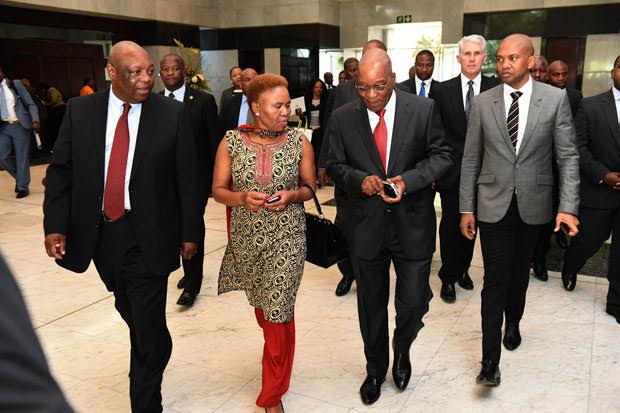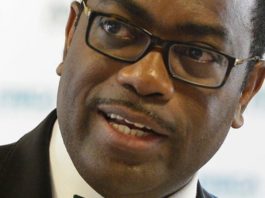
By Sana Butler | The AfricaPaper
South Africa – When the president of a country invites business leaders to a strategy meeting on the best ways to partner to strengthen the economy and create jobs, it seems like a no-brainer. Yes, especially if the collaboration is in a developing country where political instability can be linked to high unemployment rates and weaken economic growth.
Not if the invitation is sent to the private sector in South Africa.
“Companies would send a # 3 person, who clearly had no decision making authority,” echoed Lindiwe Zulu, Minister of Small Business Development, as he referenced series guest lists initiated by President Jacob Zuma, intended to lure businesses. “It was a clear sign to government that the private sector doesn’t need to work with us, ” Minister Zulu added.
And for the most part it didn’t.
End of Apartheid
And for the most part, it didn’t. Well, after apartheid ended, business leaders and the former apartheid elite encouraged the government to focus on peace, stability and security and they would take care of the country’s financial system. They did it so well sans international sanctions and isolation that fast forward 22 years and whites in South Africa joke that if they knew how much money they would make by ending apartheid they would have voted against it a long time ago.
Private Partnership
Public-private partnerships (PPPs) are suppose to be win-win situation as a means to tap the strengths of the private sector to build public services and infrastructure. Business benefits from payments from the government for its services and, in exchange, the public sector welcomes better value for money than it would through traditional procurement.
Since 1999, the South African government has entered into partnerships with the private sector and see the cooperation as a way to push beyond PPPs to help create five millions jobs by 2020 in a country where unemployment for blacks is 42 percent.
What should be a win-win situation has instead been a challenging long term relationship as the private sector has consistently and arguably with intention left out one thing, (The people).
Richest People
The two richest people in South Africa have the same wealth as 50 percent of the population. According to World Bank data, South Africa is the most unequal country on the planet. More than half of income goes to those in the top 10 percent, while those in the bottom 10 percent receive less than one percent of total income.
“The emancipation of black people was never the aim of the private sector,” says Minister Zulu, pointing out that Gautrain Rapid Rail Link, one of the largest infrastructure project in Africa delivered in a PPP valued at R25 billion, transferred significant construction skills only to white-owned small and medium size enterprises. “Where were the contracts with blacks?”
Minister Zulu (with green headscarf) meets with young entrepreneurs features in Forbes Africa, 7 Jun 2016. Photos courtesy of South African Government
Demanding Change
Minister Zulu has taken on the charge and challenge to start demanding change to bring those who have been excluded into the mainstream economy. “Whites can no longer develop just for themselves.”
If they won’t come to the meetings with the President, she will go to them. Last month she met with Mercedes Benz South Africa which launched its C-Class sedan production factory in 2014. The agenda focused on programs to include black-owned SMEs in the supply chain design. In June, she met with Pick-n-Pay to discuss building a local mall economy into townships. This summer she talked to cashew farmers in rural villages to introduce a new education program on how to export to the world markets.
Credit Record
Watch out big banks; she has plans. “The banks won’t lend without a credit record and have not put into place innovative programs to do business with the country’s majority who don’t have one,” says Zulu, adding that the solution is to create a competitive alternative by calling for black-owned banks. Goldman Sachs confirms that the South African economy could grow by five percent over the next five years if the government and private sector invest R12 billion into 300,000 black-owned small businesses.
“Blacks will never be able to compete for a loan when compared to an application from a white-owned business who has been enriched with generations of wealth.”
Restless Voters
Yes, most of this new heavy lifting with the private sector comes in light of recent elections where the opposition Democratic Alliance (DA) won big in three of the country’s main urban centers with the mantra jobs, job, jobs. A huge upset, though it can be argued that some restless voters admittedly had no clue that the co-founder of DA was part of the Apartheid regime and that the party has historically been supported by the majority of white South Africans.
Shared Prosperity
“The ANC is working towards shared prosperity and transformative inclusive growth,” says Zulu, acknowledging that if the ANC knew the private sector was not supportive of economic empowerment “for all” following the historic 1994 elections, it would have done things differently.
“The DA promises jobs but what kind of jobs are they?” Answer: Not the wealth enrichment ones whites want. “To improve our economy and prevent civil unrest, we must deliver real opportunity for blacks not just whites,” adding, “If this country will burn, it will be burning for everyone.”
|TAP | Africa’s Newspaper of Record
The AfricaPaper: Sana Butler is an award winning author and former Newsweek correspondent. She has written for Wall Street Journal and New York Times magazine.




